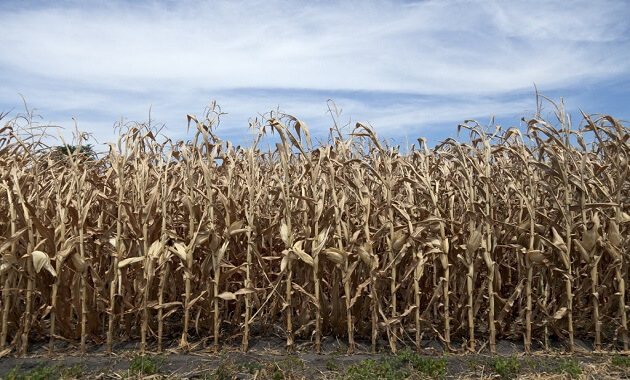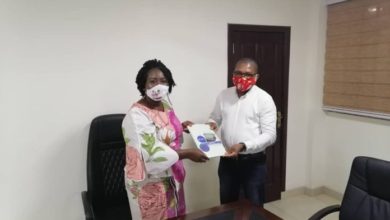Ghana Risks Famine within Three Years If…

By Krobea Asante Tofepa:
An Economics lecturer at the Valley View University at Oyibi in the Greater Accra Region, Mr. Twum Boafo has expressed fears of the possibility of some famine to hitting the country within the next two to three years if the current challenges confronting the agric sector are allowed to persist. This is despite his observation of a ‘significant improvement and growth’ in the agric sector especially after the Malabo declaration in Addis Ababa, the capital of Ethiopia before its unfortunate decline from 2013 through 2014 to 2015.
Mr. Boafo made the observation in an interview with Krobea Asante, host of Rite FM’s Morning Show on Thursday in response to a Graphic Business trend analysis on Annual Budget Funding Allocations to the Agricultural sector. These gains, according to the report were directly attributed to fulfillment of the 10% pledge of Annual Budget Funding Allocation, ABFA during the 10th Anniversary of the Comprehensive African Agricultural Development Programme (CAADP) on January 30, 2014.
According to the analysis, allocations between 2011 and 2015 rose by 354.2%, averaged at 3.2% within the same period. However, between 2011 and 2012, the sector growth rose from 0.8% to 2.3% while Allocations lifted from Ghc 13.1m to Ghc 72.5m.
Sadly, the annual growth in 2013 dropped from 5.7% to 4.6% in 2014 and further dwindling to 2.5% in 2015. The sharp decline according to the economist and lecturer is questionable and this must be answered by the sector Minister, Dr. Afriyie Akoto Osei.
‘There is something really going on at the ministry on our blind side as nothing happens without a cause,’ the lecturer asserted while demanding to know if funds allocated to the sector are put to their intended purposes by the MOFA.
Mr. Boafo further alluded that the country’s unemployment rate is increasingly getting out of hands due to the poor support extended to the sector by the government.
While he also expressed shock at the continuous use of obsolete farming methods such as cutlasses and hoes, he also questioned why it is so difficult for the small holder farmers in the country to access loans for food and animal production and called for a review of financial policies in the country which he hoped would serve as some relief to the farmers.
To him, the extension services also play a significant role in Ghana’s farming sector and called for its resourcing. ‘The country’s extension services must be looked at and resourced since it plays a pivotal role in shaping and promoting Agri – businesses to enhance the country’s development.
Mr. Boafo also called for a revision of the constitution to allow those who are experienced in the concerned sector to steer the affairs of this sensitive ministry.
He also questioned the reasoning behind the release of funds by the ministry to farmers ‘when the farming season is over, adding that ‘if people understood the business of agriculture, this will not happen.’
According to him, cocoa tonnage also reduced drastically between 2014 and 2016 due to apparent delay in the release of pesticides and fertilizers.
Mr. Boafo who doubts the success of the much advertised ‘Operation planting for food and jobs’ campaign, questioned the feasibility of the campaign employing about 750,000 people in just the 2017 farming season. He described the exercise as mere lip service which has been the country’s approach to tackling issues of agriculture.
He implored the Ministry of Food and Agriculture to adopt practical and proactive ways of implementing its intended ‘Operation planting for food and jobs’ in order to realize its success rather than the ‘arm-chair approach.’
‘The production of plantain, cassava, rice, pepper, sweet potato, yam, etc. as well as animal production is not done in parliament nor in the offices which is why there is the need to move down to the farms to understand the practicalities of how it is done,’ Mr. Boafo noted and called for a stop of the bureaucracy in the allocations of funds to the various agric departments.
He observed that all of these developments continue to lead to the constant decline in the agric sector and therefore called on all stakeholders including the government to draw a framework of robust policies to guide the improvement of the sector.`
Source: ritefmonline.org



